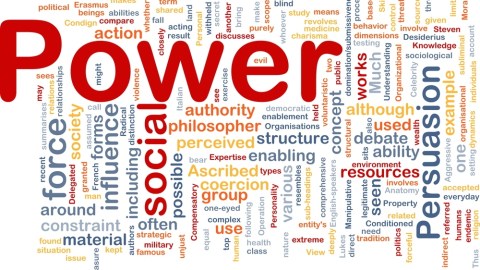The Vulnerability of Power

Who at some time hasn’t been shocked to see a sports team of seemingly unimpeachable power lose to a much weaker team? Did they overestimate their prowess or underestimate their opponent? Did they slack off at practice? Or did they lose focus because in their eyes the outcome had already been determined?
One problem with power – and the likeliest hope for those oppressed by it – is that rarely is it permanent. Yet, people with power often take it for granted or misuse it.
Research on abusive supervision shows how, by lording it over others, people in power often “cut off their nose to spite their face.” Job and life dissatisfaction and the accompanying emotional and physical exhaustion, psychological distress, absenteeism, reduced performance and poor morale typically result among the people they target. None of these outcomes reflect well on the person in charge. But nevertheless, some people in power tend to assume it will last forever.
That assumption can provide a real opportunity if you work for a power abuser. People generally act in predictable ways — and most of them are unaware of it. Combine these conditions and you have vulnerability — power in jeopardy.
To reduce or undo someone else’s power, observe carefully those who have it and how you’re helping them keep it. Then consider how to alter that pattern with the person in question. I knew a young woman who took regular insults from a supervisor; no matter what she said at meetings, he ignored or insulted her. But one day when he went too far, she gathered her things, stood up and walked out of the meeting. This isn’t usually advisable, but the way she saw it, the relationship had hit rock bottom. Since her words had not worked in the past, she had little to lose — so she walked out, ending the pattern in the process. Her supervisor ran after her, apologized and the situation never occurred again.
A response needn’t be quite so emphatic in order to make an impact. Once you recognize that power is vulnerable and that things you do can strengthen or diminish another person’s power over you, change is possible. The key is to observe how those with power use it, and how skillful others respond effectively. If your action or inaction contributes to abusiveness, then plan a way to say or do something differently. Don’t feed the monster. Try diminishing abusive power over you merely by refusing to remain predictably defensive, silenced or embarrassed.
We usually think of those without power as vulnerable, but power players are vulnerable to the extent that they’re predictable. If more people watched for those patterns and responded in ways that ended rather than extended them, there’d be a whole lot less misery in our world.
photo: Kheng Guen Toh/Shuttertock.com





